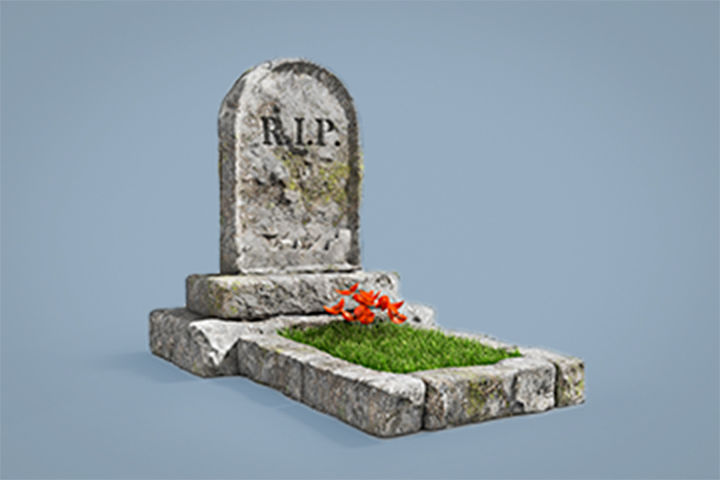No children yet, but planning to have some? Here's how you can settle your inheritance

Keytrade Bank
keytradebank.be
May 26, 2025
4 minutes to read
Many Belgians don't have children, but want their hard-earned cash to be put to good use later on. But what exactly will happen to their estate if they don't put any arrangements in place? And what can they do about it?
1. Who will inherit your estate if you don't have any children?
If you haven't made any arrangements (such as through a will), the following rules will apply:
- Single or officially cohabiting: If both your parents are still alive, each parent will receive 25% of your estate. The other half will be split between your siblings equally. If one parent has died, the siblings' share will increase to 75%. In the event that you don't have any brothers or sisters, other family members such as uncles, aunts, nephews and nieces will be involved. Ultimately, if you don't have any family left up to a fourth-degree relative, your estate will go to the Belgian State.
- Legally cohabiting (registered partnership): Cohabiting couples do not automatically inherit estates from each other. The surviving partner will only receive a limited inheritance if you have filed a declaration of legal cohabitation – one that focuses on the usufruct of the family home and its household contents. This means that your partner may continue to live in the family home and use the furniture, but will not become the full owner. (Note: Legally cohabiting partners can restrict or even deprive each other of their inheritance in full through a will).As in the case of a single person, the rest of your assets will go to your family members as set out in the system above. Furthermore, cohabitants who do not have a legal cohabitation agreement have no inheritance rights towards each other in the eyes of the law. This means your partner will inherit none of your assets if you don't make a will.
- Married: Married partners inherit from each other automatically, but the distribution depends on the matrimonial regime and whether there are any other family members. In a traditional legal system (community of property), the surviving spouse inherits all the joint assets in full ownership, plus the usufruct on the deceased partner's own property. The family of the deceased (such as parents or siblings) acquires bare ownership of the deceased's own property. Specifically, this means the spouse may continue to use the family home for life, any property owned by the deceased spouse, interest on the deceased spouse's personal savings and so on, but ultimate ownership belongs to your family (often first your parents and then any brothers or sisters). As long as the partner is alive, the family members cannot claim their property. If the deceased spouse has no parents, brothers or sisters, the surviving spouse will inherit almost everything. They enjoy strong legal protection as the surviving spouse, after all.
Note that the order set out above is the standard legal inheritance law. Brothers and sisters (and other family members) are not persons entitled to a reserved share, which means you can decide to overlook them in a will. Parents, on the other hand, inherit by law, but do not have a protected minimum share in your estate. In other words, if you don't have children, the law doesn't offer your parents a guaranteed inheritance – you can also decide not to pass on your inheritance to them if you wish. This is different in the case of a married partner, however, as a spouse always enjoys a certain level of protection.
What is the difference between bare ownership and usufruct?
The difference lies in the rights you have to a property. The bare owner is the legal owner, but may not use the property or collect the proceeds thereof. These rights belong to the usufructuary, who may occupy, lease or use the property as if it belonged to them, but without being allowed to sell it.
2. Statutory inheritance rights compared to self-determination
The legal distribution may not always correspond to what you have in mind. You may have a brother who you have lost touch with, or you may prefer that your partner, stepchild or close friend or partner inherits some of your assets instead of a distant relative. In that case, there is good news: you can draw up a will to decide, to a large extent, who will inherit your estate – especially if you don't have any children.
You enjoy a great deal of freedom when drawing up a will. The law only stipulates a few restrictions, otherwise known as persons entitled to areserved share. Children are always entitled to a minimum share, while the spouse also has a reserved share of the inheritance (in particular, the usufruct of the family home and half of the estate). However, if you don't have children or a spouse, there are no legal restrictions on your freedom to dispose of your assets – you can leave them to whoever you like. In theory, you could leave everything to a friend, neighbour or charity if you wish to do so.
Drawing up a will is the only way to deviate from the distribution set by law and remain in control of your own estate. You can appoint both family members and non-family members (such as a partner, friend or aid organisation) as heirs in amounts of your choosing. This can be done through a notary or by a handwritten will (written, dated and signed by you – although it is certainly recommended to seek advice from a notary). In addition to a will, you can also make gifts while you are alive. Anyone who prefers to see their assets (in part) go to the people they have chosen in advance can donate it to a partner, family member or third party, for example. Gifts come with their own rules and tax implications (see below), but the big difference is that gifts are made when you are alive. Once it has been executed correctly, a gift is, in principle, fixed – and the recipient immediately owns that part of your assets. This allows you to circumvent the legal order of inheritance, as the gifted part no longer belongs to the estate – at least if everything is well planned.
By gifting property now, you reduce your estate to be passed on and therefore the inheritance tax. What's more, the gift tax is significantly lower than the inheritance tax, particularly for third parties. A gift of movable property (such as money or shares) to someone who is not a direct descendant is only subject to gift tax of 7% throughout Belgium (if registered). You can even make a gift fully tax-free by hand or a bank gift, if you remain alive through the suspect period (see below). Property gifts are subject to higher, progressive rates, but these can be planned in stages to take advantage of benefits on each tranche.
Note: If you donate something without registering it in order to avoid gift tax, you must remain alive for a certain period of time. This period is commonly known as the suspect period. If you die too soon, the gift will still be included in your estate and your beneficiaries will have to pay (higher) inheritance tax on the gift received.
3. Tax implications: inheritance tax without direct descendants
In addition to the question of who gets what, there is the unavoidable reality of the inheritance tax that your heirs have to pay. In Belgium, inheritance tax falls under regional jurisdiction, but the general rule applies that the greater the degree of kinship, the higher the tax rate. Direct heirs and partners – children, (grand)children, parents, spouses and legally cohabiting partners – pay the lowest rate.
If you don't have children, your heirs will often be brothers, sisters or other family members – or even people who aren't relatives if you decide to leave something to a friend. Beneficiaries in these categories pay higher rates.
For brothers and sisters, the inheritance tax starts at:
- 25% and rises to 55% in Flanders;
- 20% and rises to 65% in Brussels;
- 20% and rises to 65% in Wallonia, although these rates fall over the long term.
For uncles, aunts, nephews and nieces, the inheritance tax starts at:
- 25% and rises to 55% in Flanders;
- 35% and rises to 70% in Brussels;
- 25% and rises to 70% in Wallonia, although this will fall in the future.
For third parties, the inheritance tax starts at:
- 25% and rises to 55% in Flanders;
- 40% and rises to 80% in Brussels;
- 30% and rises to 80% in Wallonia, although these rates fall over the long term.
4. Options for managing your inheritance yourself
The tax burden of inheritance without children is higher. Your heirs (with the exception of your parents) may be subject to a much higher burden than a colleague with children, for example, whose inheritance stays in a direct line. Fortunately, you have a number of options at your disposal to reduce the inheritance tax. We have already touched on a will and gifts, but you have the option of a dual legacy or a friends' legacy.
Dual legacy
A dual legacy is an option in a will with which you provide two legacies: part of your inheritance goes to a charity (such as a recognised non-profit organisation), provided that the charity pays the inheritance tax on the part that goes to your own beneficiaries. The charity itself pays no (or very little) inheritance tax (depending on the region), which means the net amount retained is higher despite assuming the heirs' higher-rate tax burden. The heirs who are not members of your family (friends, distant relatives) receive their inheritance tax-free, as the charity pays the bill. Note: Since 1 July 2021, the dual legacy has not been fiscally attractive in Flanders. Flanders reduced the rate for charities to 0%, but at the same time introduced rules that meant the tax benefit of a dual legacy disappeared. However, a dual legacy is still useful in Brussels and .
Friends' legacy
When the dual legacy was scrapped, Flanders introduced the friends' legacy. This means that you can leave an amount of up to €15,000 to a friend (or distant relative) in your will at a special low rate of 3%. A maximum amount of €15,000 per deceased applies. Brussels also has a similar measure of a 3% rate on €15,000, while Wallonia does not.
Lasting power of attorney
A lasting power of attorney is not a technique used to save inheritance tax, but rather to respect your wishes should you become incapable before your death (due to illness or accident, for example). In a lasting power of attorney, you appoint someone to represent your personal and financial interests if you are no longer able or willing to do so yourself. You can also specify what should happen to your property. This is crucial for single people who don't have children. As you don't have an automatic representative (meaning you have no power of attorney), the justice of the peace will decide who manages your affairs. In a lasting power of attorney, you can give instructions to make donations to certain persons or charities later on in life and more.
Already prepared or not made plans yet?
At Keytrade Bank, you can make your money work for you in the meantime


